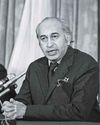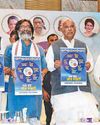Following matches through radio static to plugging in—Indian fans have been steadfast as ever. But has the dazzle of European soccer held us in enthralled stupor?

IF you keep faith in the Beautiful Game, the FIFA World Cup would arrive every four years as manna from heaven, a cornucopia that is soul food as well as sensual indulgence. While Indian football fans have not thrown up a team their countrymen could root for, they have absorbed, nay inhered, world football through the decades. The nature of fandom has changed too—from those who fought over broadsheets to read about ‘what happened last night’ to those who can now plug a pair of earphones into their smartphones and transport themselves into a live game. Football has been changing too, with the technology revolution laying its hand on the techniques of football, as on everything else. Yet, in its essence, it’s still what a lay observer will say it is: 22 individuals on a lush field running after a leather orb.
It is not that simple though, isn’t it? The origins of provincial partisanship are layered enough. The Indian fan from Bengal always had the ‘big three’ of East Bengal, Mohun Bagan and Mohammedan Sporting to expend their energy on, though greats like Hungary’s Ferenc Puskas were also celebrated. With the dwindling of Indian footballing prowess on the world stage from the ’60s, the fan’s association with the game has gone through a radical shift. Experts believe the gamechanger in the postWar World Cup era to be the allure of watching Maradona running defences ragged in Mexico on colour TV in 1986. “It started in 1958, with Pele and Garrincha,” says football writer Novy Kapadia. He says that prior to that the WC had been won by “predominantly White teams” and the common belief was that “Blacks don’t have the temperament to last a full world cup”, something that was said about the West Indies cricket team of that era as well. “Brazil shattered that.”
Bu hikaye Outlook dergisinin June 25, 2018 sayısından alınmıştır.
Start your 7-day Magzter GOLD free trial to access thousands of curated premium stories, and 9,000+ magazines and newspapers.
Already a subscriber ? Giriş Yap
Bu hikaye Outlook dergisinin June 25, 2018 sayısından alınmıştır.
Start your 7-day Magzter GOLD free trial to access thousands of curated premium stories, and 9,000+ magazines and newspapers.
Already a subscriber? Giriş Yap

Trump, Up And Charging
'Many countries are nervous about Donald Trump returning to power, but India is not one of them'

Post and Past the Oil in Azerbaijan
As the UN climate conference takes place in Baku, Azerbaijan traces the history of the hydrocarbon industry through the lens of postage stamps

Bhutto's Nehru Story
Nehru's principle of \"compromise and argument\" remains the only workable formula for South Asian leaders

Breathless on Bachchan
Cédric Dupire's documentary The Real Superstar is an irreverent, experimental archive of Amitabh Bachchan's life and his stardom

The Anaphora to Zeugma of the Queen's English
Shashi Tharoor's book is a logophile's candy shop, full of fun, surprises and insights

The Wind Knocked
THE wind knocked on the door. Hesitantly. Wanting to be let in. It had heard the murmuring of the flames. And knew that there was a fire. The wind sought shelter.

The Way Home
“We comfort ourselves by reliving memories of protection. Something closed must retain our memories, while leaving them their original value as images. Memories of the outside world will never have the same tonality as those of home and, by recalling these memories, we add to our store of dreams; we are never real historians, but always near poets, and our emotion is perhaps nothing but an expression of a poetry that was lost.”—Gaston Bachelard, The Poetics of Space

The War Artist
Cartoonist and journalist Joe Sacco is in search of the truths distorted by conventional narratives

Mining Adivasi Votes
If the BJP manages to win Jharkhand, it will be the third mineral-rich state after Odisha and Chhattisgarh that will fall into the party's kitty

Unequal Republic
Political parties make promises of equal represention to women, but patriarchy continues to dominate electoral democracy